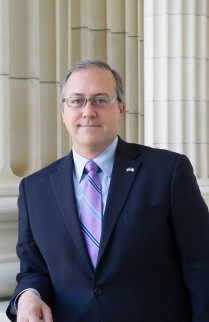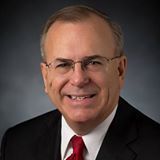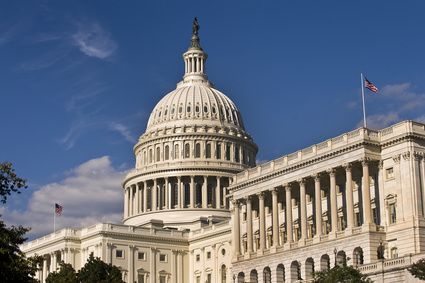This morning the Iowa Senate passed Senate File 2125, which would terminate contracts the state has signed with insurance companies picked to manage care for Iowans on Medicaid. Governor Terry Branstad announced his administration’s “modernization” plans early last year and selected four managed care providers in August, with a view to fully privatizing Medicaid by January 1, 2016. The state later terminated a contract with one of those four companies, and the federal government refused to grant the necessary waivers, saying Iowa would not be ready to shift to managed care until March 1 at the earliest.
Iowa Senate leaders made clear on day one of this year’s legislative session that Medicaid privatization would be a pressing concern. Senate President Pam Jochum has been sounding the alarm since last year, worried about how privatization would affect her developmentally disabled adult daughter and other Iowans with special needs. Jochum gave the opening and closing remarks in support of Senate File 2125 today. She repeatedly warned that the Branstad administration has tried to do too much, too fast, without input from state lawmakers or other stakeholders with expertise in the area. Fellow Democrats Chris Brase, Liz Mathis, Mary Jo Wilhelm, Rich Taylor, and Amanda Ragan echoed many of those concerns in their speeches.
During the floor debate, Republican State Senator David Johnson explained why he would vote for the bill. He read e-mails from numerous constituents expressing concern about access to health services for their loved ones on Medicaid. He pointed out that Minnesota took 20 years to transition to managed care, while Iowa is trying to implement the same changes over just one year. “It’s moving too fast. That’s the issue here. We need to put a dagger in this.”
Last week Johnson became the first GOP lawmaker to come out in favor of terminating the privatization program; I enclose below excerpts from Jason Clayworth’s report for the Des Moines Register. Johnson’s fears about “children at risk of losing services” stem from the failure of the managed care companies to sign contracts with thousands of providers who have been treating Iowans on Medicaid, including children on HAWK-I (Iowa’s version of the State Children’s Health Insurance Program). Scroll to the end of this post for more details on that access problem, based on data from the Iowa Department of Human Services.
Republicans who spoke against the bill today included Senators Jason Schultz and Mark Chelgren. Schultz claimed Democrats took “ownership” of managed care by putting assumptions about Medicaid savings into the health and human services budget for the current fiscal year. During her concluding remarks, Jochum pushed back hard against the idea that a vote for last year’s health and human services budget was a vote for managed care. Rarely do I ever agree with Schultz, but I think Senate Democrats walked into a trap there. The Branstad administration’s estimates on reduced Medicaid costs after privatization were never grounded in reality, but Democrats accepted those assumptions in the budget they passed–not because they supported the Branstad effort, but likely because doing so gave them an extra $51 million to spend on other health-related priorities.
Chelgren argued that lawmakers should keep their word after voting for a budget that assumed Medicaid would shift to managed care. He likened the situation to Congressional Republicans voting to repeal the 2010 Affordable Care Act without having a plan ready to replace “Obamacare.” The analogy fails because terminating Medicaid privatization that hasn’t been fully implemented would not be like repealing Obamacare after several years of operation. The status quo is an available and less disruptive alternative to serving the 560,000 Iowans on Medicaid. Chelgren claimed that halting Medicaid privatization and starting the process over would “betray” those who signed up as providers under the new system. That argument made no sense; public comments from Iowans on Medicaid and health care stakeholders have overwhelmingly opposed the Branstad policy.
During her concluding remarks, Jochum refuted claims that 39 other states have put Medicaid in managed care. In reality, only four states have fully privatized the system, as the governor is doing.
Shortly after the floor debate, senators voted 29 to 19 to approve SF 2125. Republicans Jake Chapman and Tom Shipley joined Johnson and all 26 Senate Democrats. Notably, those three Republicans all represent strongly GOP districts, not marginal seats.
The bill now goes to the Iowa House, where Speaker Linda Upmeyer has indicated she does not plan to bring the measure up for debate. For a nurse practitioner by training, Upmeyer is remarkably insensitive to ordinary people’s health care needs–not only those on Medicaid, but also chronically ill Iowans who could benefit from medical cannabis. A post in progress will catch up on the state of play for medical marijuana in the Iowa legislature.
UPDATE: Added more links and comments on the Medicaid debate below. According to Erin Murphy, Upmeyer confirmed today that the House will not take up SF 2125, because the governor would certainly veto it. Given how unpopular Medicaid privatization is, the public would likely support a legislative override of that veto. But at least five more Republican senators would have to change their stands to override a veto in the upper chamber. In the House, at least 24 GOP state representatives would need to support an override, assuming all 43 House Democrats voted in favor.
Continue Reading...

















